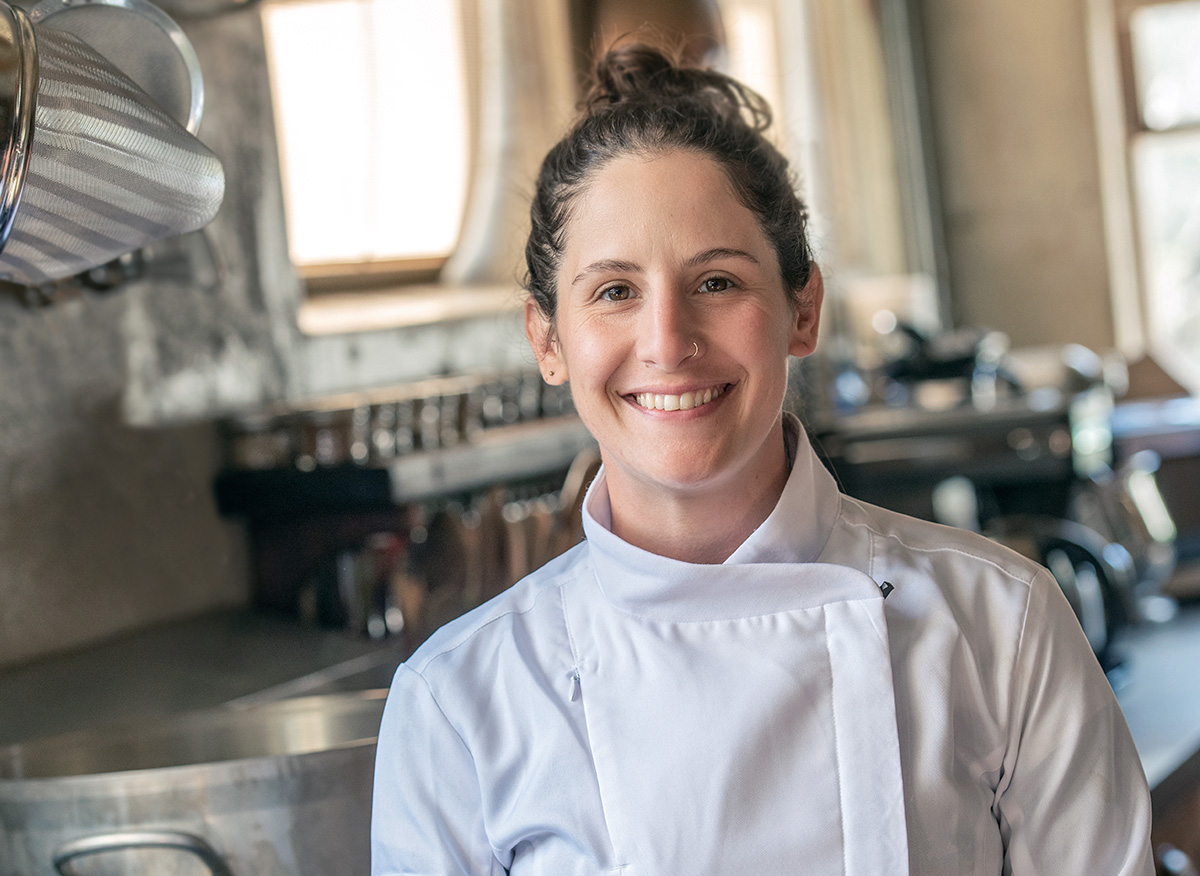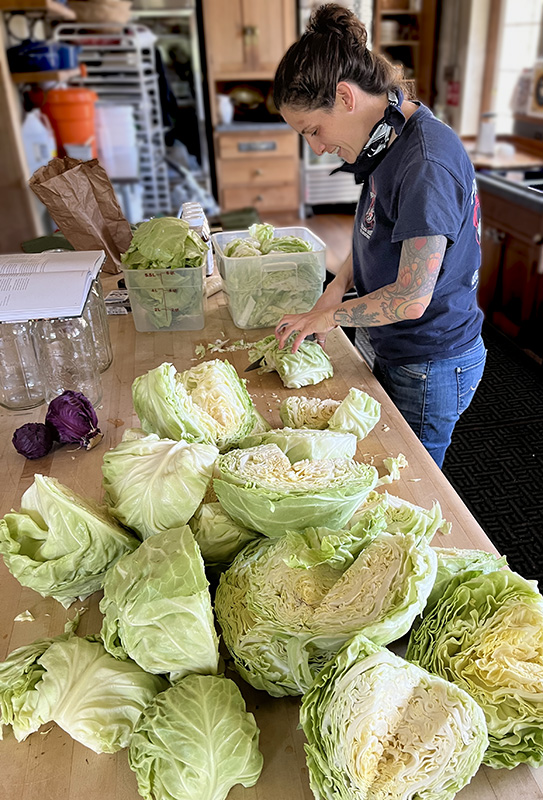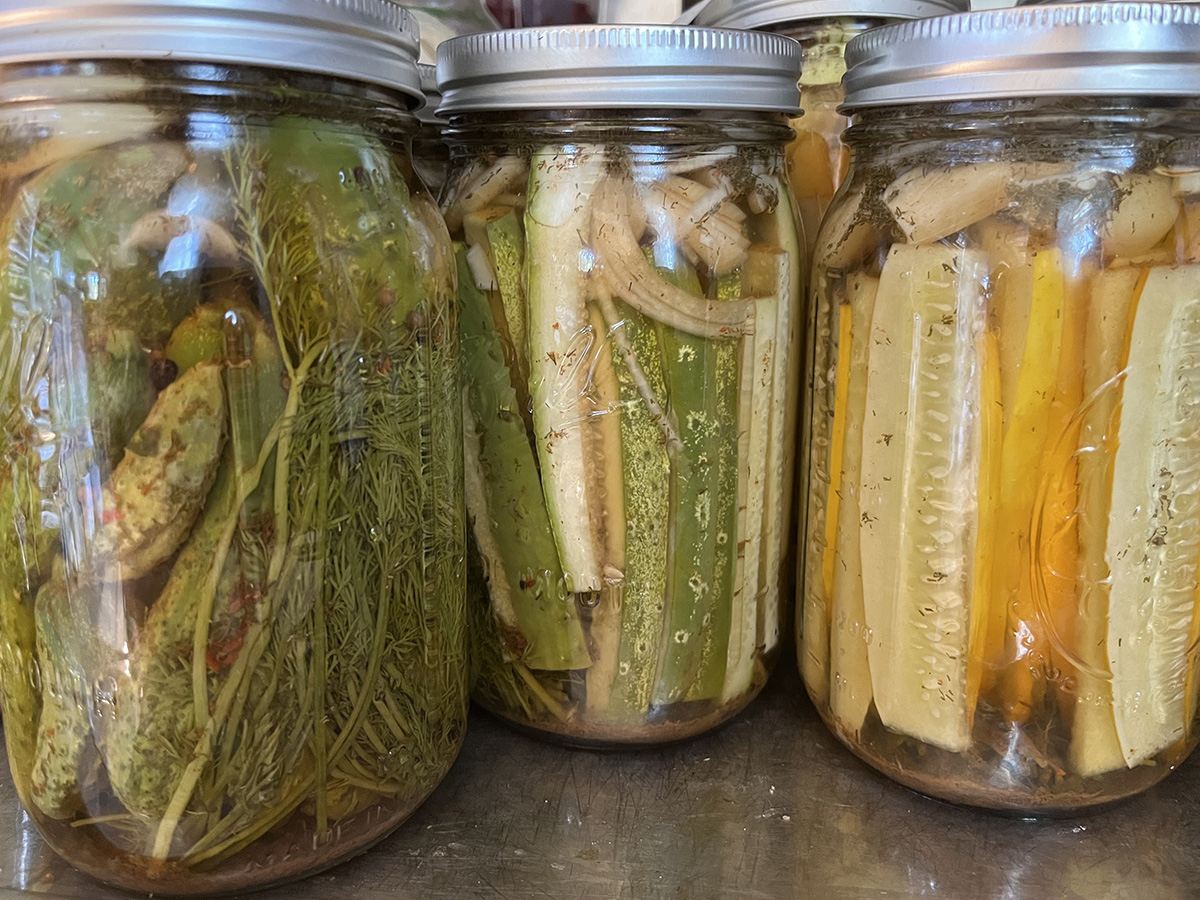I began my career in hospitality in an effort to heal my own relationship to food. As a chef, I find myself perpetually wondering where my food comes from.
Reflections from our Chef and Garden Fellow

02/08/2023
By: Isabelle Nunes
“Regenerative agriculture is not only about regenerating soils. It is about healing relationships, healing history, healing the people who still languish in the shadows of the legacies of colonization.”
I began my career in hospitality in an effort to heal my own relationship to food. As a chef, I find myself perpetually wondering where my food comes from. I am always on the hunt for the most flavorful ingredients, whether foraged or farmed, and in my quest, I have fallen in love with agriculture. I arrived at TomKat Ranch as the first Chef and Garden Fellow with an intense curiosity about the complexities of healthy soil and a desire to create change in the food industry that I have made my home. As I share my reflections here, I have woven in some quotes that resonated with me on my journey.

My personal calling is to connect people to food grown with integrity as the foundation of well being—and to help people understand and be intentional about their contribution to our shared food system. Applying holistic principles of regenerative agriculture this year has integrated my passion for culinary excellence with knowledge of the land. My perspective is more informed and grounded as a result of serving food grown from the seeds I have sown. Working with healthy soil each day has been rewarding for many reasons—not least of which is that, as some studies suggest, regular contact with microbial communities in healthy soil has proven to be beneficial to our own microbiome!
What has clearly emerged for me is that the roots to what ails us run deep, and healing depends on our commitment to each other and our Mother Earth. From seed to plate, the health of our food system correlates closely to the health we see reflected in the human population and the health of our planet.
The human body is a living system within and sustained by the ecological and social systems of this planet. The human gut serves as the operating center for the human organism, constantly sending signals to the brain and directly affecting our nervous system. A healthy gut microbiome is fostered by a diverse diet of fresh, whole foods grown in healthy soil and fermented foods, and maintaining a diverse community in our gut microbiota is as important as diversity in our human and ecological communities.
Healthy soils have a symbiotic relationship with the plants they feed, acting as a digestive system that mirrors the human gut microbiota. Mycelium networks underground send messages through their hyphae just like our nerve cells transmit information to our nerve pathways. When the soil is teeming with life, we all benefit.

Food grown in healthy soil is being shown to contain more nutrients and retain flavors that are more pronounced, bold, and indulgent to the sensory experience of eating. In contrast, when we consume food from soils that are treated with pesticides and other chemicals intended to kill bacteria, the quality of nutrition in our food and resilience of life in the soil is highly compromised.
As I engage with the community through food, I am always reminded of what a gift it is to be able to gather and experience the nourishment of meals prepared by the many hands and many hearts of others. I am deeply inspired by the commitment of past, present, and future generations to produce healthy, equitable, and accessible foods that regenerate our soils and sustain life on earth. Stewardship is best practiced in community, and investing in our local foodsheds is a great way to uphold the health of our food supply and engage with the farming community.
“The soil is the great connector of life, the source and destination of all. It is the healer and restorer and resurrector, by which disease passes into health, age into youth, death into life. Without proper care for it we have no community, because without proper care for it we have no life.”
I understand regeneration as a way of being, a practice of inclusion and attunement to life both wild and domestic. We humans connect in community to solve problems and build bridges, similar to other organically occurring systems and relationships present throughout nature, yet another reminder that we are not separate from nature. I believe that as we continue wishing for growth, we must sow seeds of hope and water them through our actions.
The challenge I have for myself and for other chefs is: How do we use our position to influence change and contribute to our climate, society, and community in productive ways?